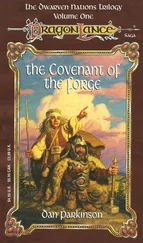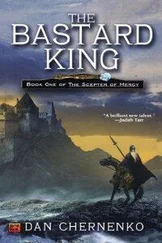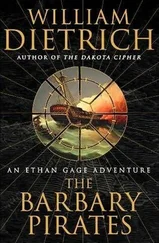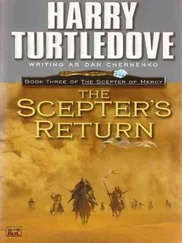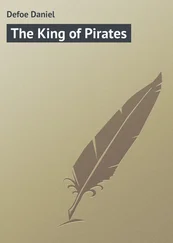Hirundo and Pterocles hurried away. Vsevolod’s place was by Grus. “I thank you for this,” he said in his ponderous Avornan. “I will do, my folk will do, all things possible to do to help.”
“I know.” Grus turned away. He thought Vsevolod meant well, but still had other things on his mind. A trumpeter stood by, face tense and alert. Grus pointed to him. “Signal the attack.”
“Yes, Your Majesty.” The trumpeter raised the horn to his lips. Martial music rang out. Only for a moment did it come from one trumpet alone. Then every horn player in the Avornan army blared forth the identical call.
Cheering Avornan soldiers swarmed forward. Grus wouldn’t have cheered, not attacking a place like Nishevatz. Maybe the common soldiers didn’t realize what they were up against. Some of them came within arrow range of that formidable wall and started shooting at the defenders on top of it, trying to make them keep their heads down. Others carried scaling ladders that they leaned up against the gray stone blocks. More Avornans—and some Chernagors, too—raced up the ladders toward the top of the wall.
“Come on!” Grus muttered, watching them through the clouds of dust the assault kicked up. “Come on, you mad bastards! You can do it! You can!”
He blinked. Beside him, King Vsevolod exclaimed in his own guttural language. Vsevolod grabbed Grus’ arm, hard enough to hurt. The old man still had strength. “What is that?” he said. “I see ladders. Then I see no ladders.”
Pterocles was doing his job. “I hope Prince Vasilko’s men don’t see them, either,” Grus said. “If the men can get to the top of the wall, get down into Nishevatz…”
“Yes,” Vsevolod said. “Then to my son I have some things to say.” His big, gnarled hands opened and closed, opened and closed. Grus hadn’t cared to be caught in that grip, and didn’t think Vasilko would, either.
Even from so far away, the din was tremendous, deafening. Men shouted and screamed. Armor clattered. Dart-throwing engines bucked and snapped. Stones crashed down on soldiers storming up—the wizard’s magic wasn’t perfect. Ladders went over or broke, spilling soldiers off them.
And, much closer than the walls of Nishevatz, Pterocles suddenly howled like a wounded wolf. “Noooo!” he cried, his voice getting higher and shriller every instant. All at once, every siege ladder became fully visible again. The ladders started toppling one after another when that happened. Pterocles also toppled, still wailing.
Vsevolod said something in his own language that sounded incandescent. Grus said the foulest things he knew how to say in Avornan. None of their curses did any good. It quickly grew plain the assault on the wall wouldn’t do any good, either.
Grus hauled Pterocles to his feet. The wizard’s face was a mask of pain. Grus shook him. “Do something!” he shouted. “Don’t just sound like a wheel that needs grease. Do something!”
“I can’t.” Pterocles didn’t just sound like an ungreased wheel. He sounded like a man who might be about to die, and who knew it. “I can’t, Your Majesty. He’s too strong. What happened to me before, this is ten times worse—a hundred times. Whoever’s in there, he’s too strong for me.” Tears ran down his cheeks. Grus didn’t think he knew he shed them.
The king shook the wizard again. “You have to try. By the gods, Pterocles, the soldiers are depending on you. The kingdom is depending on you.”
“I can’t,” Pterocles whispered, but from somewhere he found strength. He straightened. Grus let go of him. He still swayed, but he stayed on his feet. “I’ll try,” he said, even more quietly than before. “I don’t know what will happen to me, but I’ll try.”
Before Grus could even praise him, he exploded into motion. He had a long, angular frame, and every separate part of him seemed to be moving in a different direction. Grus had never seen a wizard incant so furiously. It was as though Pterocles were taking pieces of his pain and flinging them back into Nishevatz. His magic didn’t seemed aimed at the Chernagor soldiers on the walls anymore. Whatever he was doing, he was doing against—doing to—the wizard who’d come so close to killing him moments before.
“Take that!” he shouted again and again. “Take that, and see how you like it!”
Vsevolod nudged Grus. “He is mad,” the old Chernagor said, and tapped the side of his head with a forefinger.
“Sometimes, with a wizard, it helps,” Grus said. But he wondered exactly whom Pterocles was fighting. Was it some Chernagor wizard who, like Vasilko, had abandoned the gods and turned to the Banished One, or was it the being the Menteshe called the Fallen Star himself, in his own person? If it was the Banished One himself, could any merely mortal wizard stand against him?
Before Grus got even a hint of an answer, Hirundo distracted him. The general was bleeding from a cut over one eye. His gilded helmet had a dent in it, and was jammed down over one ear, which also bled. He seemed unaware of the small wounds. “Your Majesty, we can’t get over the wall,” he said without preamble. “You’re just throwing more men away if you keep trying.”
“No hope?” Grus asked.
“None. Not a bit. No chance.” Hirundo sounded absolutely certain.
“All right. Pull them back,” Grus said. The general bowed and hurried away. Vsevolod made a wordless noise full of fury and pain. He turned his back on Grus. Grus started to tell him he was sorry, but checked himself. If Vsevolod couldn’t figure that out without being told, too bad.
“Take that!” Pterocles shouted again, and laughed a wild, crazy laugh. “Ha! See how you like it this time!”
He thought he was getting home against whoever or whatever his foe was. And the more confident he grew, the harder and quicker came the spells he cast. Maybe—probably—it was madness, but it was inspired madness.
And then, like a man who’d been hit square in the jaw, Pterocles toppled, right in the middle of an incantation. All his bones might have turned to water. When Grus stooped beside him, he was sure the wizard was dead. But, to his surprise, Pterocles went on breathing and still had a pulse. Grus slapped him in the face, none too gently, to try to bring him around. He stirred and muttered, but would not wake.
“Will he have any mind when he rouses?” Vsevolod asked.
Grus could only shrug. “We’ll have to see, that’s all. I just hope he does wake up. Something bigger than he was hit him there.”
“It is mark of Banished One,” the Prince of Nishevatz declared. Grus found himself nodding. He didn’t see what else it could be, either.
Hirundo, meanwhile, pulled the Avornans back from the walls of the city-state where Vsevolod had ruled for so long. Many of them limped and bled. More than a few helped wounded comrades escape the rain of stones and arrows from the battlements.
“What now?” Vsevolod asked.
The last time Grus had faced that question, he’d decided to try to storm Nishevatz. Now he’d not only tried that, he’d also seen how thoroughly it didn’t work. He gave the man who’d asked for his help the only answer he could—a shrug. “Your Highness, right now I just don’t know what to tell you.”
He waited for Vsevolod to get angry. Instead, the Chernagor nodded in dour approval. “At least you do not give me opium in honey sauce. This is something. You make no fog of pretty, sweet-smelling promises to lull me to sleep and make me not notice you say nothing.”
“No. I come right out and say nothing,” Grus replied.
“Is better.” Prince Vsevolod sounded certain. Grus had his doubts.
King Lanius read the letter aloud to Queen Sosia, Queen Estrilda, Prince Ortalis, and Arch-Hallow Anser—Grus’ daughter, wife, legitimate son, and bastard. “ ‘And so we were repulsed from the walls of Nishevatz,’ Grus writes,” he said. “‘I should never have tried to storm them, but looking back is always easier than looking forward.’ ”
Читать дальше


